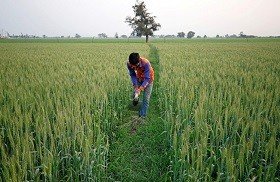IPGA to host webinar on Desi and Kabuli Chickpeas on August 14
It will focus on production, procurement, sale, pricing, domestic and international market trends, and policies of Desi and Kabuli chickpeas
India Pulses and Grains Association (IPGA), the nodal body for India’s pulses trade and industry, will be hosting its SECOND WEBINAR under the ‘THE IPGA KNOWLEDGE SERIES’ on Desi and Kabuli Chana at 5 pm on Friday August 14, 2020. .
IPGA has selected Chickpeas as the subject for the August 14th webinar primarily due to two reasons: a) The arrival of Rabi harvest in the market and b) The Hon’ble Prime Minister’s announcement of extending the PMGKY scheme till end of November 2020 under which close to 18 crore households will be given 1 kg of Chana free of cost.
India had a production of 9.94 million tons in 2018-19 and as per the 3rd Advance Estimates, the production for 2019-20 is expected to be 10.90 million tons. The extension of the PMGKY scheme will mean that NAFED will procure large quantities of Chana from the farmers at MSP and the forthcoming festival season is also expected to boost the demand for Chana. All these factors will play a role in determining the prices in the domestic and international markets.
The August 14 webinar on Desi and Kabuli Chickpeas will extensively cover the following topics: Chickpeas Production: India and other major origins, NAFED’s Procurement, Stock and Selling Policies, Implications of free distribution of Chana under PMGKY scheme, Global and Indian price outlook of Chickpeas, Chana supply and demand trends, India’s import policy and tariff, Kabuli Chana – Production and exports.
The panellists of the August 14th webinar, to be moderated by Economist, Senior Editor and Policy Commentator. G Chandrashekhar boasts of industry stalwarts and domain experts like Mr. Sunil Kumar Singh – Addl. Managing Director, NAFED, Gaurav Bagdai – Promoter, G P Agri, Sanjiv Dubey – Director, GrainTrend Pty Ltd, Australia, Jayesh Patel – Group CEO & Executive Member, Bajrang International Group, UAE, Cem Bogusoglu, Global Head – Pulses Trading, G P Global Group, UAE and Navneet Singh Chhabra, Director, Shree Sheela International, India.
Jitu Bheda, Chairman – IPGA speaking about Chickpeas Webinar said, “Australia, Russia, Black Sea, East Africa are among the key origins from where Chickpeas are imported and IPGA has invited experts from these regions to talk about the scenario in the respective origins as well as the impact they expect on Chickpeas trade on the back ground of the agri-reforms as well as the extension of the PMGKY scheme.”
The Registration for the August 14 IPGA Knowledge Series webinar on Chickpeas is open and you can register using the link: https://forms.gle/6Ug1yJqwsnXLmBL77
Mr. Bimal Kothari, Vice Chairman – IPGA said, “India’s annual requirement for Desi chickpeas is around 8-9 million metric tonnes (MMT), whereas the production for 2019-20 is expected to be around 10.90 MMT. Additionally, NAFED has recently done a massive procurement of 21.43 Lakh Metric Tons of Chana to support the extension of the PMGKY scheme. This 21.43 lakh MT procurement of Chana will have a three-fold effect. Firstly, it will provide nutritional security to close to 18 crore households, secondly help provide better price realization for the farmers and boost production taking another step towards making India Aatmanirbhar in Pulses and thirdly it will help keep the price of Chana supported especially in the current situation of a bumper crop in the open market close to the MSP.”
The IPGA Knowledge Series has received an overwhelming response from all key stakeholders with over 900 participants from across 30 countries participating in the inaugural webinar held on July 10th, 2020. It is IPGA’s endeavour to become the knowledge hub of pulses sector and reiterate India’s position as the leader of the pulses trade and industry, more so because the world is becoming vegan. Hence its pertinent to share a detailed outlook on each topic which is crucial for the trade and industry.
It will focus on production, procurement, sale,










